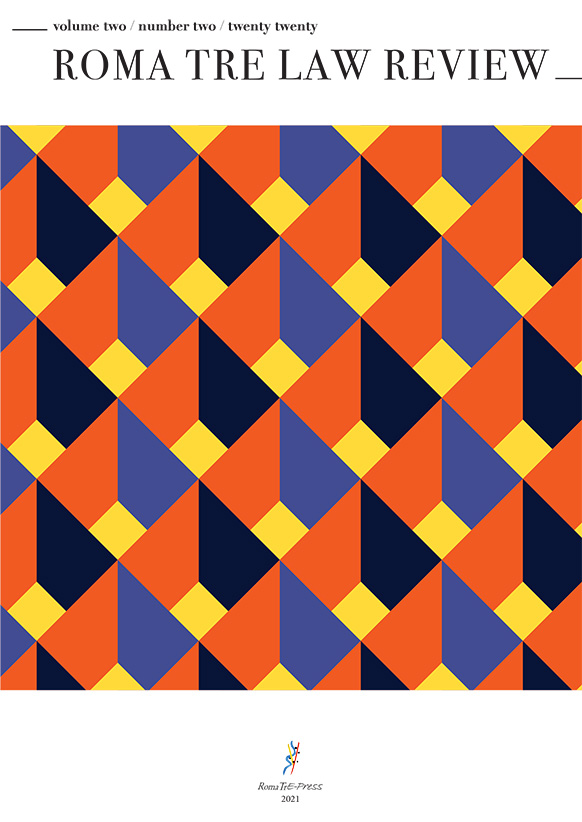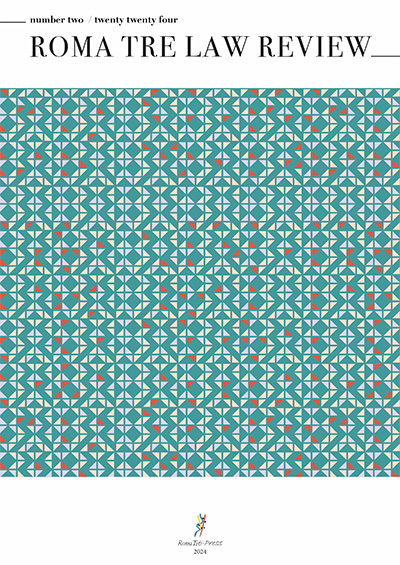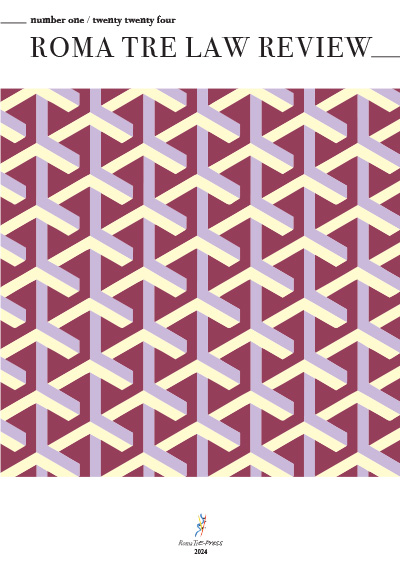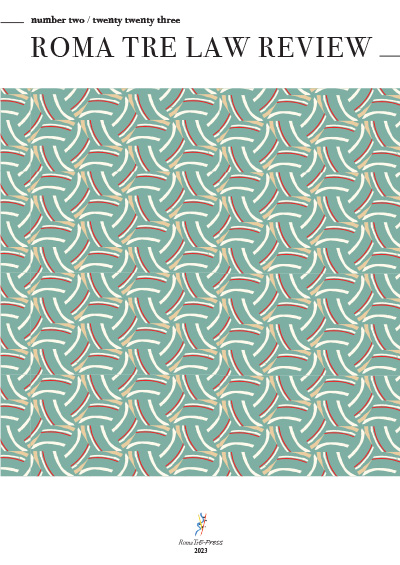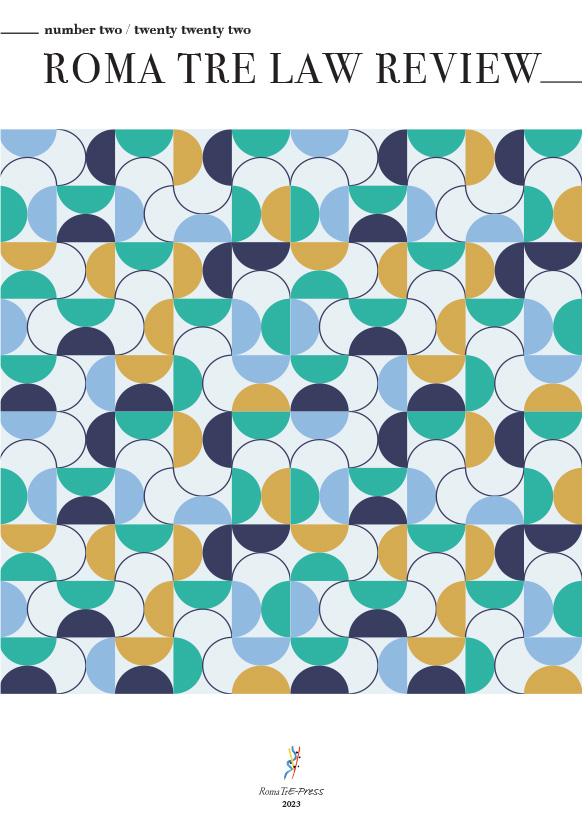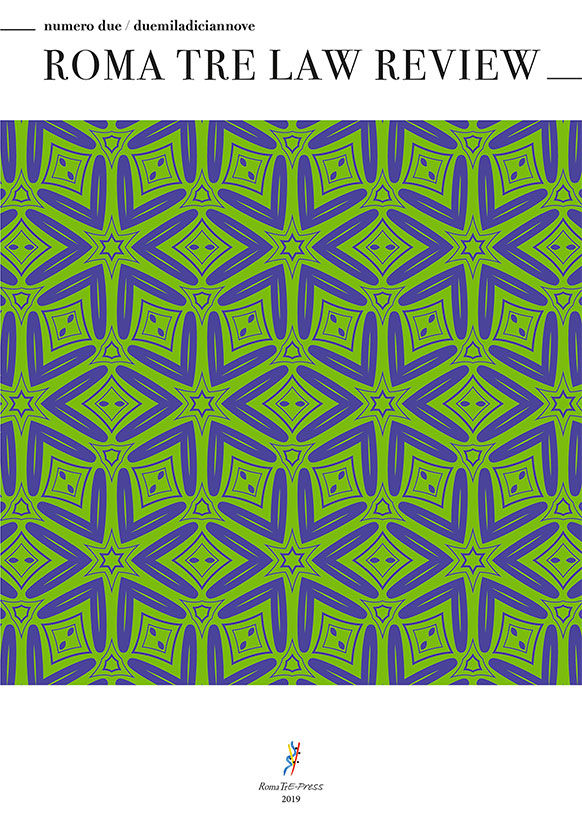Kindredship, subsidiarity and grassroots movements: catalysts for effective legal change
Rebecca Spitzmiller
The article introduces and analyzes “kindredship” – a more inclusive term to identify what has been called “fraternity” throughout modern history – as a necessary ingredient, along with subsidiarity and grassroots movements, to address a range of emergencies, injustices and challenges that threaten democracy, the rule of law, and our very survival as a species. Increasingly, active citizens bring a broad array of problems to the attention of legal institutions at the local, national and global levels. Through multi-stranded synergies, our human-to-human links congeal into mass movements that spur environmental, social justice and human-rights activists to appeal to governments to make institutional changes. In Italy, the constitutional principle of subsidiarity, mirroring that of European law, requires the government to support citizens’ efforts when they promote general interests. Such interests thus gain legitimacy and citizens’ efforts foster reciprocal trust among themselves and with institutional allies, fortifying the democratic values that are essential to our social contract. Without this strengthened interdependence among all stakeholders, the plethora of existing legal norms at every level will remain unable to provide remedies for a vast range of inequities and brewing crises. The article explores comparative-law aspects of how the combined effects of kindredship, subsidiarity and grassroots movements fortify the rule of law. Civic engagement, based on our common humanity and built in the spirit of kindredship, is a key to overcoming the challenges that legal institutions face to defend and bolster democracy, whose inherent fragility requires constant diligence.
L'articolo introduce e analizza il termine "kindredship" – più inclusivo del consolidato termine “fraternità – quale ingrediente necessario, insieme alla sussidiarietà e ai movimenti di base, per affrontare emergenze, ingiustizie e sfide che minacciano la democrazia, lo stato di diritto e la nostra stessa sopravvivenza come specie. Sempre più, cittadini attivi portano all'attenzione delle istituzioni legali a livello locale, nazionale e globale, una vasta gamma di problematiche. Attraverso complesse sinergie, i legami interumani tendono a coagularsi in movimenti di massa che spingono gli attivisti per l'ambiente, la giustizia sociale e i diritti umani a fare appello ai governi al fine di apportare cambiamenti istituzionali. In Italia, il principio costituzionale di sussidiarietà, che rispecchia quello del diritto europeo, impone al governo di sostenere le iniziative dei cittadini quando questi promuovono interessi generali. Tali interessi acquistano così legittimità e gli sforzi dei cittadini favoriscono la fiducia reciproca e con gli alleati istituzionali, fortificando i valori democratici, essenziali per sostenere il contratto sociale. Senza tale interdipendenza tra tutti i soggetti interessate, la pletora di norme giuridiche esistenti ad ogni livello rimarrà incapace di fornire rimedi per una vasta gamma di disuguaglianze e crisi nascenti. L'articolo esplora aspetti di diritto comparato su come gli effetti combinati di kindredship, sussidiarietà e movimenti popolari fortificano lo stato di diritto. L'impegno civico, basato sulla nostra comune umanità e costruito nello spirito di kindredship, rappresenta una chiave per superare le sfide che le istituzioni giuridiche devono affrontare per difendere e sostenere la democrazia, la cui intrinseca fragilità richiede costante cura.
DOI: 10.13134/2704-9043/2-2020/2

